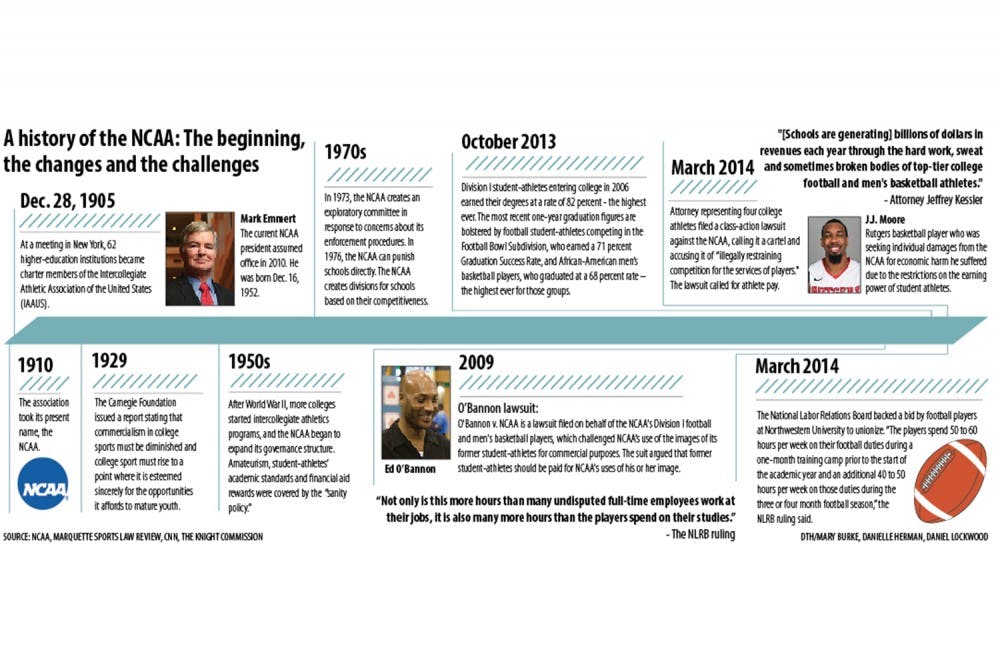Whether or not this decision will eventually have an impact on student-athletes at public universities like UNC is still unclear because the board only makes decisions for private universities. North Carolina is also a right-to-work state.
Athletic Director Bubba Cunningham said he was surprised by the decision and sees UNC student-athletes as students, not employees.
At the heart of the story, he said, is that student-athletes want a stronger voice. He said the main concern UNC athletes have mentioned to him is managing time, not deserving pay.
“That’s not their No. 1 driver. It’s certainly in their top five, but it’s not their No. 1 driver,” Cunningham said.
He said his top priorities for changes at UNC and at the NCAA level include reconsidering the 20-hour weekly athletic activity limit , better medical care and the appropriate allocation of revenues generated from sports teams.
“Personally, I don’t think (the appropriate allocation is) in direct compensation to the student. But I think providing education and opportunities to play is where we should spend our money,” he said.
Jeremy Sprinkle , spokesman for North Carolina’s chapter of the American Federation of Labor and Congress of Industrial Organizations , said the ability for student-athletes to have an organized voice through unionization is crucial.
“If they had an organized voice in how their athletic program was run, it’s possible that there wouldn’t be the academic scandals that there have been in the athletics program at UNC-Chapel Hill,” he said.
Sprinkle said athletes generate wealth for conferences yet do not have a platform that advocates for their interests.
But Barbara Osborne , a UNC professor who has specialized in legal issues surrounding athletics, said athletes have a voice through things like the Student Athlete Advisory Committee, an ACC student-run organization, and team captains.
“It would be foolish for football players to vote to unionize. Because what football players would get as employees is probably far less than they already get now,” Osborne said.
UNC tax law professor Gregg Polsky said if future student-athletes’ scholarships are legally tied to their athletic performance, their scholarships would be subject to federal and state income taxes and federal employment taxes.
To get the day's news and headlines in your inbox each morning, sign up for our email newsletters.
Osborne also said the ruling had some inconsistencies.
She said if nonscholarship athletes are putting in the same work as scholarship football players without compensation, the NLRB should have a problem with that, but the ruling didn’t mention it.
For some, the answer to logistical questions won’t come soon enough.
Amy Perko , the executive director of the Knight Commission on Intercollegiate Athletics , said there is no time to wait for the union decision to play out in the courts.
“The commission doesn’t believe we have years to wait on some of the changes that do need to be made to treat athletes more fairly,” she said.
She said University leaders and the NCAA both have the ability to make changes more quickly, including reducing the time athletes spend on sports and changing the way athletic profits are spent.
Perko said $1 billion dollars will be made throughout the next six years for the athletic conferences by teams who win during March Madness.
“That is a ridiculous amount for winning for an association that claims education as its No. 1 priority.”
Assistant Sports Editor Grace Raynor contributed reporting.
university@dailytarheel.com



